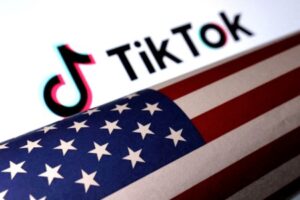By David Shepardson
WASHINGTON (Reuters) – TikTok and parent company ByteDance face a key court hearing on Monday in a legal battle seeking to block a law that could ban the app used by 170 million Americans as soon as Jan. 19.
The U.S. Court of Appeals for the District of Columbia will hold oral arguments on the legal challenge, putting the fate of Chinese-owned TikTok in the middle of the final weeks of the 2024 presidential election.
Both Republican presidential candidate Donald Trump and Vice President Kamala Harris are active on TikTok seeking to court younger voters.
TikTok and ByteDance argue the law is unconstitutional and violates Americans’ free speech rights saying it is “a radical departure from this country’s tradition of championing an open Internet.”
Driven by worries among U.S. lawmakers that China could access data on Americans or spy on them with the app, the measure was passed overwhelmingly in the U.S. Congress in April just weeks after being introduced.
ByteDance has said a divestiture is “not possible technologically, commercially, or legally” and without a court ruling will lead to an unprecedented ban on Jan. 19. Circuit Judges Sri Srinivasan, Neomi Rao and Douglas Ginsburg will consider the legal challenges brought by TikTok and users.
TikTok and the Justice Department have asked for a ruling by Dec. 6, which could allow the U.S. Supreme Court to take up the decision before any ban takes effect.
President Joe Biden signed the law in April, giving ByteDance until Jan. 19 to sell TikTok or face a ban, but he could extend the deadline by three months if he certifies ByteDance is making progress toward a sale.
The White House and other advocates of the law said the measure is a challenge to Chinese-based ownership of the app, and not a move to eliminate TikTok.
The White House says it wants to see Chinese-based ownership ended on national security grounds, but not a ban on TikTok.
(Reporting by David Shepardson; editing by Miral Fahmy)




